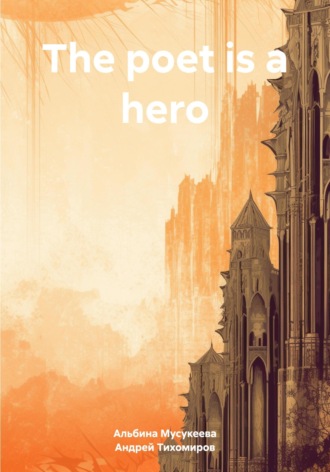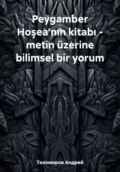
Андрей Тихомиров
The poet is a hero
Musa Jalil
"The Soviet people fought against the hated enemy not only in their homeland, but also actively participated in the anti-fascist resistance movement. The immortal feat was performed by the Hero of the Soviet Union, the communist poet Musa Jalil, a native of the village of Mustafino in the Sharlyk district. During the battle, he was seriously wounded and captured. A firm belief in the correctness of Lenin's ideas, in the Victory of the Soviet people over the brown plague, helped him to continue the fight against fascism itself, in prisons. He organized an underground group, but was betrayed by a traitor and sentenced to death. Inhuman torture does not destroy M.'s fortitude and courage. Jalil. The Communist poet remained a faithful son of returning to his homeland until his last breath" (Tikhomirov A. E., Chkalovskaya (Orenburg) region during the Great Patriotic War, "Ridero", Yekaterinburg, 2022, p. 10).
Musa Zalilov (Jalil) was born on February 2 (15), 1906 in the village of Mustafino in the Sharlyk district of the Orenburg region (at that time the Orenburg province), where in 1919 he founded a children's organization that joined the struggle for Soviet power. He was the sixth and youngest child in the family. His parents are Tatars. Rahim and Mustafa Zalilov (Jalilov) soon after Musa's birth decided to move to a provincial town, where life was much easier than in the village. Rahima was the daughter of a mullah who arranged for Musa to study at the Husainiya madrasah. After the revolution, the theological educational institution was reformed and became the Tatar Institute of Public Education. Growing up, Moses realized that religion was not his way. The result of his education was a technical certificate, which he received at the Faculty of the Pedagogical Institute. He actively visits the library in Orenburg, where literature in Tatar and Russian is presented, and gets acquainted with the best works of that time.
On October 2 (old style), 1906, the meeting of the Orenburg Muslim Charitable Society decided to apply for the opening of a free library in the city, for which a commission was elected. Having received the governor's permission, the commission began collecting books and money from the population, ordered furniture, and rented a private building in Sytny lane. And soon the library was opened in a solemn atmosphere. In the early years, the library received 17 newspapers and magazines in the Tatar language and 6 newspapers and magazines in Russian. The subscription was expanded and supplemented with public funds. Students clean the room themselves, put books and inventory in order, and public assistants provide services to students. In August 1908, the charitable society purchased a two-story house in Solyanoy Lane for 25 thousand rubles for the library. Although slowly, the library stock is growing. According to the census of 1910, there were 1,510 books in it, and the library named after9700 people. The library is not only engaged in the issuance of literature, it conducts extensive cultural and educational work among the Tatars, Bashkirs, and Cossacks of the city. Meetings with famous people are often organized, popular lectures are given, and reader conferences are held. Sewing and sewing courses, music and drama clubs are organized in the library.
During these years, the library was visited by writers Shakir Mukhammedov, Zakir Ramiyev (Dardmend), Shamun Fidai, H. Yamashev, leading folk artists Fatima Kamalova, Mazit Ildar and others. In 1917-1919, he was the head of the Department. The library was headed by the famous Tatar writer Sharif Kamal, who did a lot to complete the library with literature. His influence on the students was enormous. It was during these years that Musa Jalil became an active reader of the library. During these years, the library, like all Tatar literature, has been going through dramatic events in its development.







